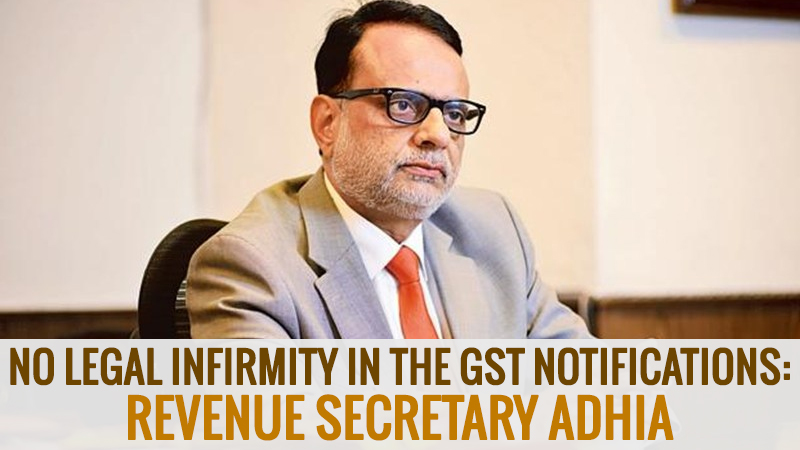
Some experts have raised concern regarding the legality of levying excise duty by the Centre on various commodities till implementation of the goods and services tax (GST) from April 1, 2017. The GST council will be taking care of the GST rates and other issues related to the implementation of GST across states.
Revenue Secretary Hasmukh Adhia tweet reads, “DoR (department of revenue) examined the validity and implications of notifications dated September 10 and 16 with respect to existing taxes imposed by the Union and states. There is no legal infirmity in these notifications.”
He further added that the law department has confirmed that “there appears to be no legal requirement to issue any further clarification or notification in this regard”.
Read Also: Impact of GST on SMES and Startups
The confusion revoked due to the notification about the amendment of Entry 84 of the Union List following which the Centre can levy excise only on high-speed diesel, petroleum crude, gasoline and natural gas.
Nangia & Co-Director Rajat Mohan stated, “The government may say the power to levy excise, service tax could be drawn from Entry no. 97 from the Union List which is the residuary entry. The power to levy state taxes i.E. VAT, entry tax and Octroi etc could be drawn from Section 19 of The Constitutional (One Hundred and First Amendment) Act, 2016.”









